
Jacó Island: The Pristine Gem of Timor-Leste
Jacó Island, located off the eastern tip of Timor-Leste, is a stunning and untouched paradise. The island is part of the Nino Konis Santana National Park, which is known for its rich biodiversity and vibrant marine life. Jacó Island is an uninhabited sanctuary, offering visitors a unique chance to connect with nature in its purest form. The island's pristine white sand beaches and crystal-clear turquoise waters make it a perfect spot for snorkeling and swimming. The surrounding coral reefs are teeming with colorful fish, making it a haven for underwater photography enthusiasts. Visitors can also enjoy a leisurely walk around the island, taking in the lush greenery and the sound of waves crashing against the shore. Jacó Island holds cultural significance for the local Timorese people, who consider it a sacred place. Therefore, overnight stays on the island are not permitted, but day trips can be arranged from the nearby village of Tutuala. The journey to Jacó Island itself is an adventure, involving a scenic drive through the rugged landscape of Timor-Leste and a short boat ride across the clear waters separating the island from the mainland.
Local tips in Jacó Island
- Bring your own snorkeling gear as rental options are limited.
- Pack enough food and water for the day since there are no facilities on the island.
- Respect the local customs and remember that overnight stays are not allowed.
- The best time to visit is during the dry season (May to November) for calm seas and clear skies.
- Hire a local guide from Tutuala to enhance your experience and learn more about the island's significance.
Jacó Island: The Pristine Gem of Timor-Leste
Jacó Island, located off the eastern tip of Timor-Leste, is a stunning and untouched paradise. The island is part of the Nino Konis Santana National Park, which is known for its rich biodiversity and vibrant marine life. Jacó Island is an uninhabited sanctuary, offering visitors a unique chance to connect with nature in its purest form. The island's pristine white sand beaches and crystal-clear turquoise waters make it a perfect spot for snorkeling and swimming. The surrounding coral reefs are teeming with colorful fish, making it a haven for underwater photography enthusiasts. Visitors can also enjoy a leisurely walk around the island, taking in the lush greenery and the sound of waves crashing against the shore. Jacó Island holds cultural significance for the local Timorese people, who consider it a sacred place. Therefore, overnight stays on the island are not permitted, but day trips can be arranged from the nearby village of Tutuala. The journey to Jacó Island itself is an adventure, involving a scenic drive through the rugged landscape of Timor-Leste and a short boat ride across the clear waters separating the island from the mainland.
When is the best time to go to Jacó Island?
Unmissable attractions to see
Jaco Island
Explore the untouched beauty and vibrant marine life of Jaco Island, a hidden gem in East Timor perfect for nature lovers and adventure seekers.
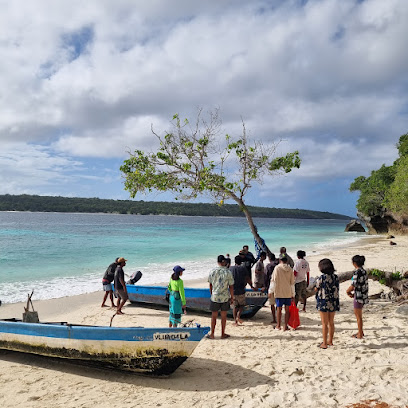
Lene Hara Cave
Explore Lene Hara Cave in Tutuala, a stunning natural wonder and historical landmark rich in local culture and breathtaking geological formations.
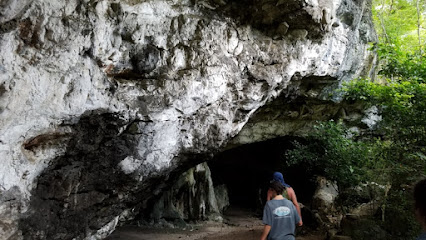
Ili Kere-Kere
Explore the captivating landscapes and rich biodiversity of Ili Kere-Kere, a hidden gem in Timor-Leste's Tutuala region, perfect for nature lovers and cultural adventurers.
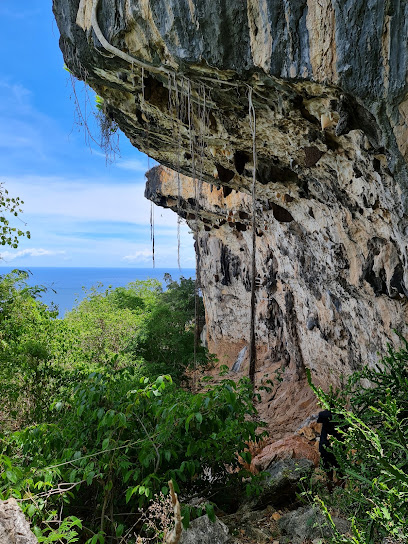
Airleu Beach
Experience the tranquil beauty and local culture at Airleu Beach, a hidden gem in Timor-Leste's stunning coastline.
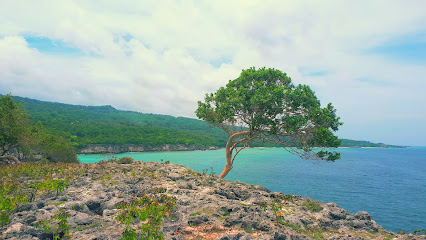
Miniatur Kuburan Yesus
Explore the Miniatur Kuburan Yesus in Jaco - a serene tourist attraction that beautifully encapsulates the essence of faith and artistry in miniature form.

Sea View
Discover the breathtaking vistas and serene ambiance of Sea View in Tutuala, a hidden gem in Timor-Leste that promises unforgettable experiences.
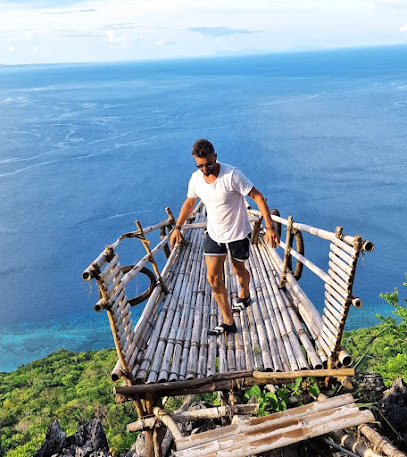
Loiquere Beach
Experience the tranquil beauty of Loiquere Beach in Mehara, a perfect escape for relaxation, adventure, and local culture.
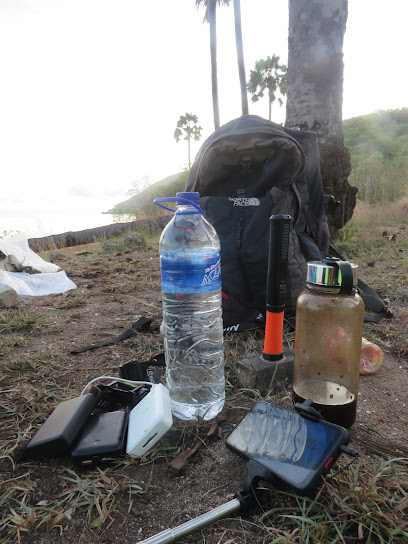
Zo'on-sere (Tauraka-Papakassa) Chailoro
Explore Zo'on-sere (Tauraka-Papakassa) Chailoro, a stunning tourist attraction in Tutuala, showcasing breathtaking landscapes and rich cultural heritage.
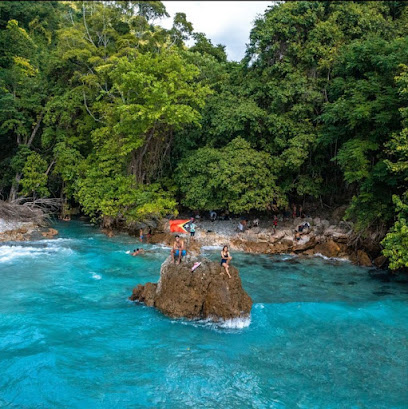
Valu Beach
Experience the serene beauty of Valu Beach in Timor-Leste, where pristine sands meet azure waters for a perfect getaway.

Lariara semitery
Explore Lariara Cemetery in Tutuala, a tranquil tourist attraction that reflects Timor-Leste's rich heritage and cultural significance, perfect for reflection and exploration.

Essential places to dine
Pousada Lautem
Discover tranquility at Pousada Lautem, a cozy guest house surrounded by nature's beauty in Tutuala, Timor-Leste.
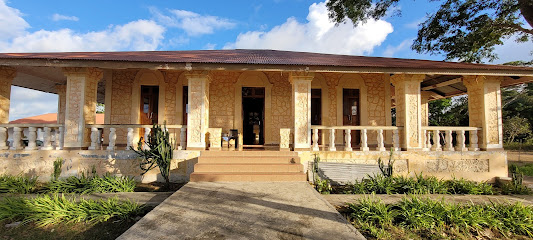
Guest House Valu
Discover comfort and local charm at Guest House Valu in Timor-Leste - a perfect retreat for travelers seeking authentic experiences.
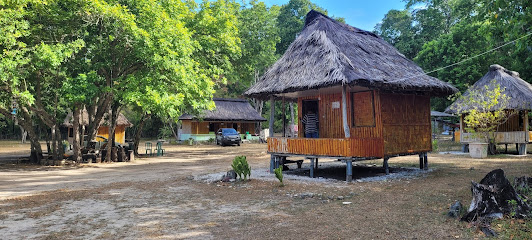
Jaco Island
Explore Jaco Island: A pristine sanctuary in East Timor offering stunning beaches and vibrant marine life perfect for adventure seekers.
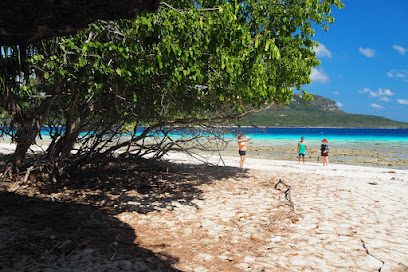
Lakumorre Guest House
Experience warm hospitality and local charm at Lakumorre Guest House in Lautem – your perfect retreat in East Timor.
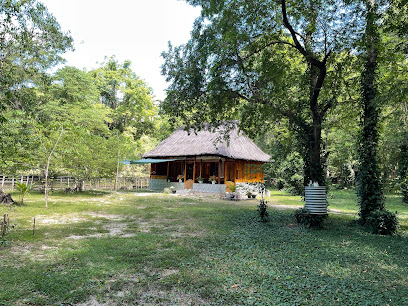
Asarini Cafe and Restaurant
Discover authentic Timorese cuisine at Asarini Cafe and Restaurant - where every meal is infused with local flavor in Lospalos.
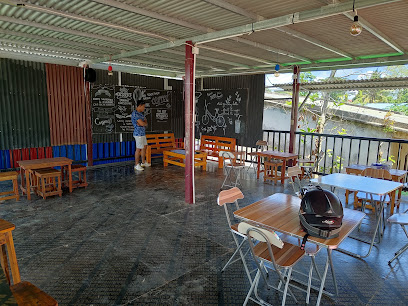
Restaurante Cinta Rasa
Experience authentic East Timorese cuisine at Restaurante Cinta Rasa in Lospalos – where every dish is a celebration of local flavors.
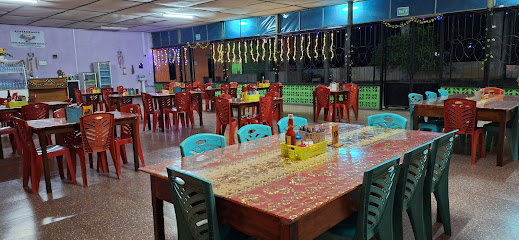
Warung Bakso
Discover authentic Indonesian cuisine at Warung Bakso in Lospalos—where every bite tells a story.
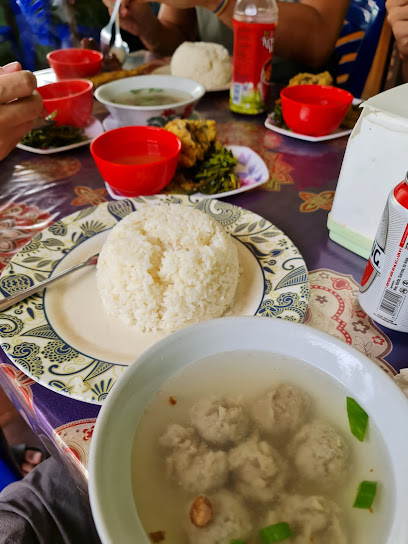
Guest House & Restaurante Angel
Discover authentic Timorese cuisine at Guest House & Restaurante Angel in Lospalos – a culinary haven for food lovers.
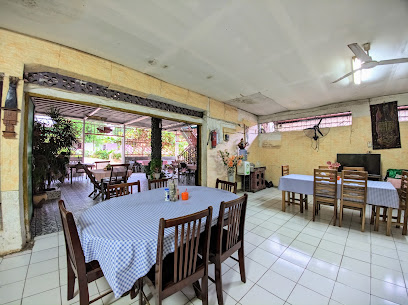
Walu Sere
Experience authentic Timorese cuisine at Walu Sere in Tutuala - where every dish tells a story.
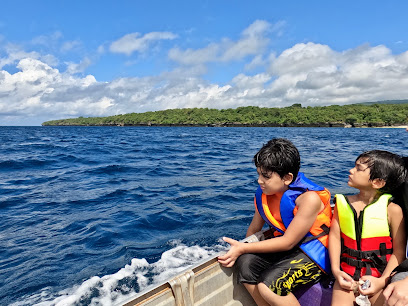
Markets, malls and hidden boutiques
Jaco Island
Explore the untouched beauty of Jaco Island, a tropical paradise in Timor-Leste, where adventure meets tranquility.
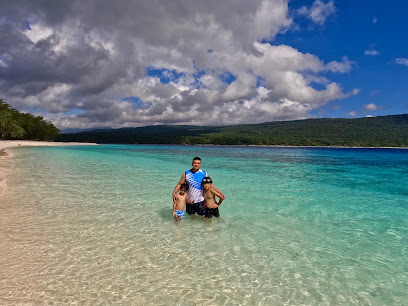
Jaco Beach Resort Hotel
Discover the serene beauty and adventure of Jaco Beach Resort Hotel, your perfect getaway in Tutuala, where luxury meets nature.
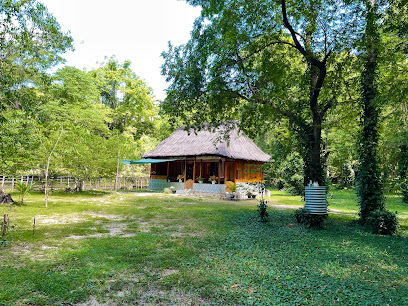
Ira-onu mini shop
Discover unique souvenirs and local crafts at Ira-onu Mini Shop, a charming retail gem in Timor-Leste that reflects the region's vibrant culture.
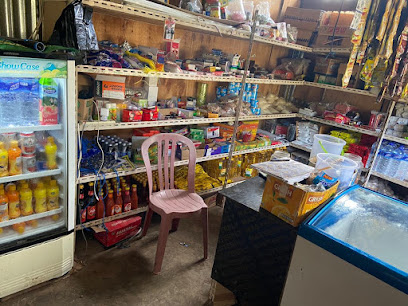
Loja Linda
Experience the vibrant flavors and local culture at Loja Linda, Pairara’s premier supermarket offering fresh produce and unique artisanal goods.

Rumah cristovao
Explore Rumah Cristovao in Lospalos for unique home goods and local crafts that capture the essence of Timor-Leste's rich cultural heritage.
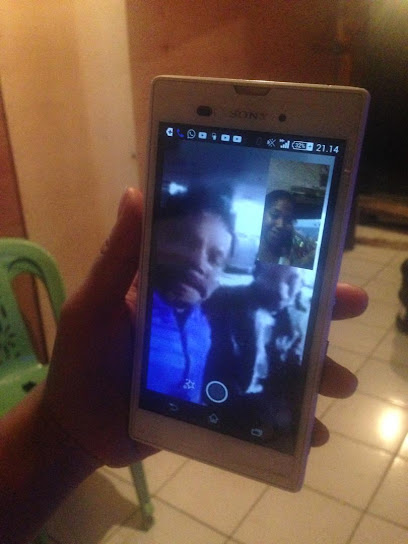
Loja Sentrál
Discover affordable fashion at Loja Sentrál, a vibrant clothing store in Lospalos, blending local culture with contemporary styles for every taste.

Loja Fanumiri
Explore Loja Fanumiri in Lospalos for a unique shopping experience blending local culture and essential goods.
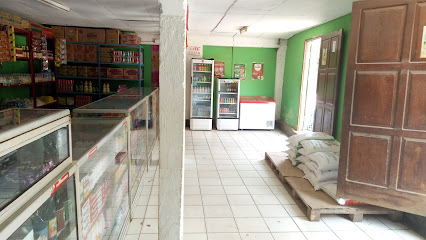
Enche Official Project
Explore the Enche Official Project in Lospalos for unique souvenirs and local crafts that capture the spirit of East Timor.

Wachu Jaar
Discover the vibrant shopping scene at Wachu Jaar in Lospalos, where local culture meets modern retail in a delightful atmosphere.

Lucky El Jetrho Shop
Explore the vibrant children's clothing at Lucky El Jetrho Shop in Lospalos, where culture meets creativity in stylish attire for all ages.

Stationery Shop
Discover a creative oasis in Lospalos at this charming stationery shop, offering unique supplies and local artisan crafts for every creative soul.
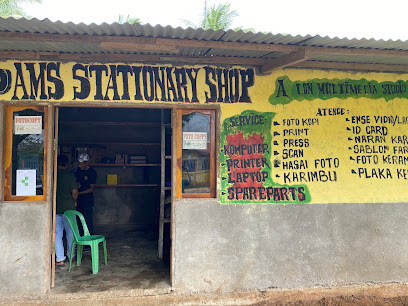
Lospalos
Discover Lospalos: A Cultural Haven in East Timor with Rich Traditions, Stunning Landscapes, and Local Delights Awaiting Every Traveler.

MARKET MARFIN
Explore the vibrant flavors of Timor-Leste at Market Marfin, Lautém's premier grocery store offering local delicacies and fresh produce.
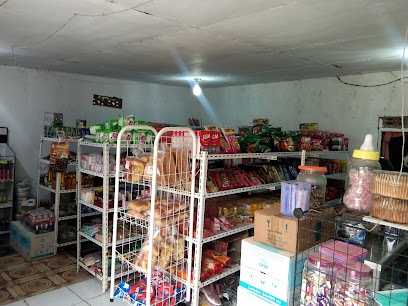
Kios wacu Seiara
Experience the heart of Lospalos at Kios wacu Seiara, your go-to grocery store for authentic Timorese products and local charm.

Sesoru btk
Stay connected in Mehara at Sesoru btk, the premier cell phone store for tourists seeking quality devices and accessories.

Essential bars & hidden hideouts
Caz Bar
Experience the vibrant flavors and warm hospitality of Dili at Caz Bar, a must-visit culinary destination for every traveler.
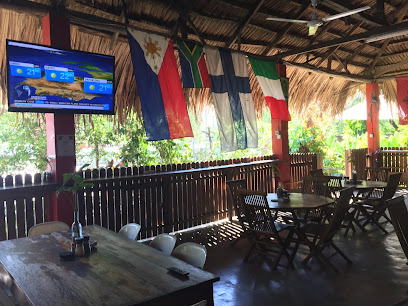
Castaway Bar and Restaurant
Experience the flavors of Timor-Leste at Castaway Bar and Restaurant in Dili, an inviting hub for food lovers and socializers alike.
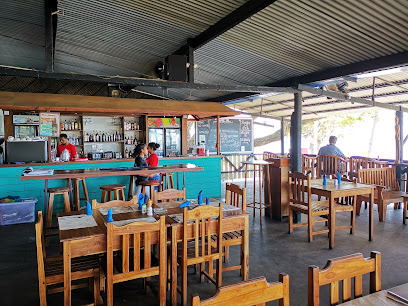
Jaco Island
Explore Jaco Island: A breathtaking paradise of pristine beaches, vibrant coral reefs, and rich Timorese culture awaits you in East Timor.
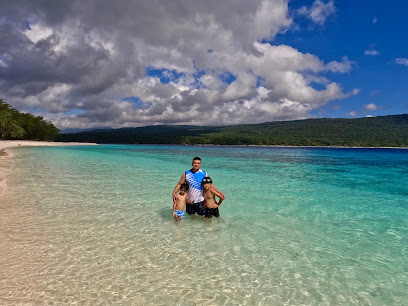
El Legendario
Discover El Legendario in Dili, where Timorese hospitality meets a fusion of local and international flavors in a charming setting.
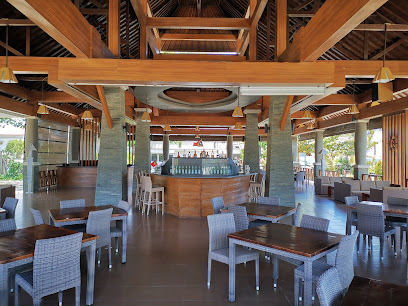
Tito's Restaurant
Discover the rich flavors of Portuguese cuisine blended with local Timorese ingredients at Tito's Restaurant in Dili.
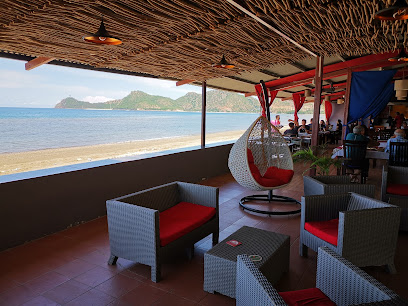
Jaco Beach Resort Hotel
Experience ultimate relaxation and adventure at Jaco Beach Resort Hotel, nestled in the breathtaking landscapes of Tutuala for the perfect getaway.
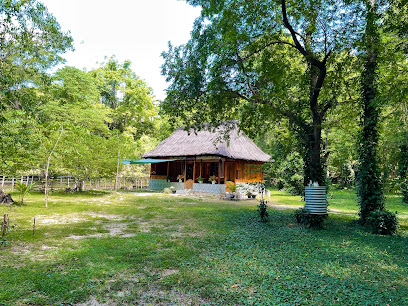
Restaurante Victoria
Experience authentic Timorese flavors at Restaurante Victoria in Baucau, where local ingredients meet warm hospitality.
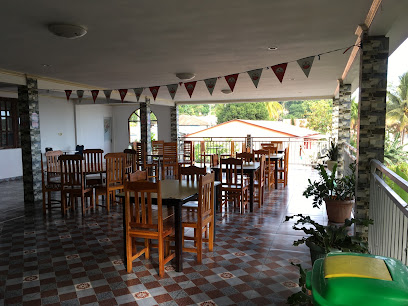
Black Box Cafe and Bar
Experience the vibrant nightlife of Dili at Black Box Cafe and Bar, where delicious drinks meet a lively social atmosphere.
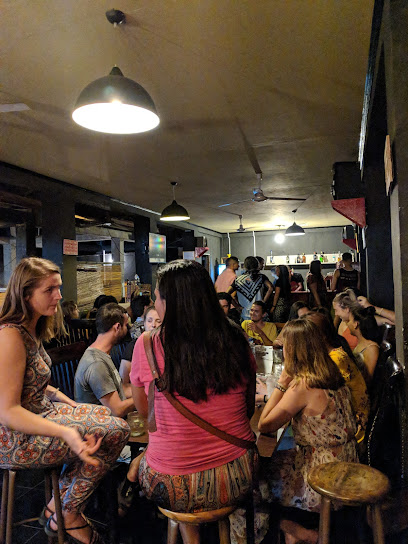
Olé Bar & Tapas
Experience the lively spirit of Dili at Olé Bar & Tapas, where traditional tapas meet vibrant nightlife in Timor-Leste.
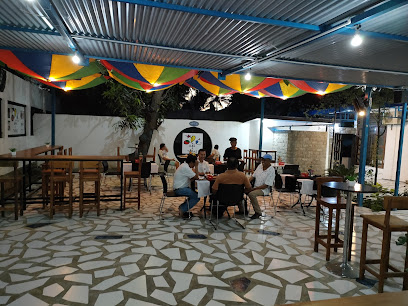
Restaurante Cinta Rasa
Experience the authentic flavors of East Timor at Restaurante Cinta Rasa, a local favorite in Lospalos offering a blend of tradition and modern culinary art.
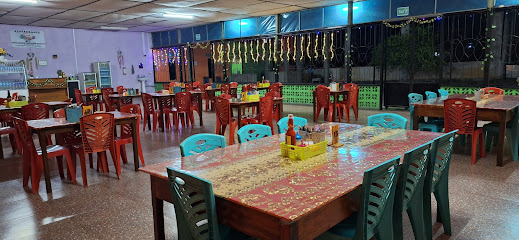
Ponkys Cocktail Lounge
Discover the vibrant atmosphere and exquisite cocktails at Ponkys Cocktail Lounge, a must-visit hotspot in Dili's nightlife scene.
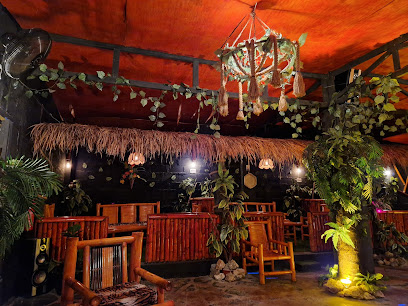
Warung Bakso
Discover the authentic taste of Indonesia at Warung Bakso in Lospalos, where every dish tells a story of tradition and flavor.
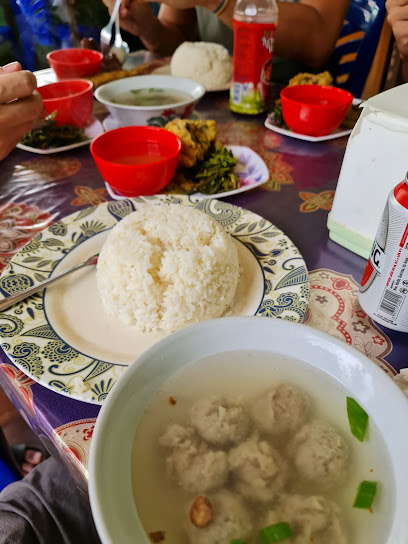
Guest House & Restaurante Angel
Discover the flavors of Timor-Leste at Guest House & Restaurante Angel, where authentic cuisine meets warm hospitality in Lospalos.
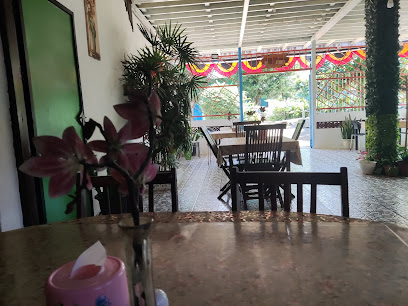
Asarini Cafe and Restaurant
Experience local flavors and vibrant culture at Asarini Cafe and Restaurant in Lospalos, where every visit promises a delightful culinary adventure.
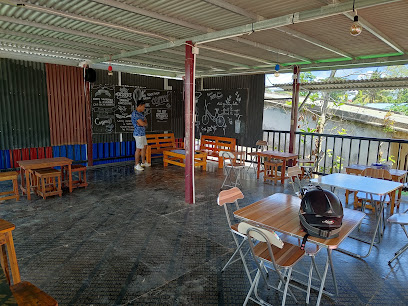
Local Phrases about Jacó Island
-
- HelloBondia
[bon-dee-ah] - GoodbyeAdeus
[ah-deh-oos] - YesSim
[seem] - NoLae
[lie] - Please/You're welcomeAmi to'o
[ah-mee toh-oh] - Thank youObrigadu
[oh-bree-gah-doo] - Excuse me/SorryDeskulpa
[dehs-kool-pah] - How are you?Ola diak?
[oh-lah dee-ahk] - Fine. And you?Diak liu. Ita nia?
[dee-ahk lee-oo ee-tah nee-ah] - Do you speak English?Ita ko'alia Ingles?
[ee-tah koh-ah-lee-ah eeng-lehs] - I don't understandHau la komprende
[how lah kohm-prehn-deh]
- HelloBondia
-
- I'd like to see the menu, pleaseHau hakerek menu, favor
[how hah-keh-rek men-oo fah-voh] - I don't eat meatHau la manan ai
[how lah mah-nahn ah-ee] - Cheers!Saude!
[sow-deh] - I would like to pay, pleaseHau hakerek selu, favor
[how hah-keh-rek seh-loo fah-voh]
- I'd like to see the menu, pleaseHau hakerek menu, favor
-
- Help!Ajuda!
[ah-zhoo-dah] - Go away!Ba oin!
[bah oh-een] - Call the Police!Talia Polisia!
[tah-lee-ah poh-lee-see-ah] - Call a doctor!Talia mediku!
[tah-lee-ah meh-dee-koo] - I'm lostHau mate
[how mah-teh] - I'm illHau moris
[how moh-rees]
- Help!Ajuda!
-
- I'd like to buy...Hau hakerek hodi sosa...
[how hah-keh-rek hoh-dee soh-sah] - I'm just lookingHau deit hare
[how dayt hah-reh] - How much is it?Kuantu hau nia?
[kwahn-too how nee-ah] - That's too expensiveNe'e boot kareta
[neh-eh boh-oht kah-reh-tah] - Can you lower the price?Ita bele reduz preku?
[ee-tah beh-leh reh-dooz preh-koo]
- I'd like to buy...Hau hakerek hodi sosa...
-
- What time is it?Tuku hitu ona?
[too-koo hee-too oh-nah] - It's one o'clockTuku ida
[too-koo ee-dah] - Half past (10)Tuku neen (10)
[too-koo nehn (deh-see)] - MorningManha
[mahn-yah] - AfternoonTarde
[tahr-deh] - EveningKalan
[kah-lahn] - YesterdayOhin
[oh-heen] - TodayLoron ne'e
[loh-rohn neh-eh] - TomorrowAban
[ah-bahn] - 1Ida
[ee-dah] - 2Rua
[roo-ah] - 3Tolu
[toh-loo] - 4Haat
[hah-aht] - 5Lima
[lee-mah] - 6Neen
[nehn] - 7Hitu
[hee-too] - 8Ualu
[wah-loo] - 9Sia
[see-ah] - 10Sanulu
[sah-noo-loo]
- What time is it?Tuku hitu ona?
-
- Where's a/the...?Iha ne'ebe...?
[ee-hah ne-eh-beh] - What's the address?Enderecu saida?
[ehn-deh-reh-soo sah-ee-dah] - Can you show me (on the map)?Ita bele hatudu hau (iha mapa)?
[ee-tah beh-leh hah-too-doo how (ee-hah mah-pah)] - When's the next (bus)?Kuandu ba dahuluk (bus)?
[kwahn-doo bah dah-hoo-loo (boos)] - A ticket (to ....)Bilhete (ba ....)
[beel-yeh-teh (bah)]
- Where's a/the...?Iha ne'ebe...?
History of Jacó Island
-
Long before European explorers set foot on Jacó Island, it was home to indigenous Austronesian people. Archaeological evidence suggests that these early settlers arrived over 4,000 years ago, living off the abundant marine resources and fertile lands. The island served as a significant settlement and trading post in the region, with intricate pottery, tools, and remnants of dwellings discovered in various archaeological digs.
-
In the early 16th century, Portuguese explorers arrived in Timor-Leste, claiming it as a part of their burgeoning colonial empire. Jacó Island, due to its strategic location, became an important point of interest. The Portuguese influence introduced new agricultural practices, religion, and architecture, leaving an indelible mark on the island's cultural landscape. The remnants of Portuguese outposts and churches can still be seen today, serving as a testament to this tumultuous period.
-
During World War II, Timor-Leste, including Jacó Island, found itself caught in the crossfire between Japanese forces and Allied troops. The island's remote location made it a strategic point for both parties. Japanese forces used Jacó Island as a lookout and supply base, which led to several skirmishes and the construction of wartime infrastructure. Relics from this era, such as bunkers and abandoned military equipment, now stand as silent witnesses to the island's wartime history.
-
Timor-Leste's path to independence was long and fraught with struggle, culminating in the country's official independence in 2002. Jacó Island, with its pristine environment and cultural heritage, has since become a symbol of national pride. Efforts to preserve its natural beauty and historical significance are ongoing, with local and international initiatives aimed at promoting sustainable tourism and protecting the island's unique biodiversity.
-
Jacó Island holds a special place in the hearts of the Timorese people. It is considered a sacred site, with numerous myths and legends surrounding its creation and significance. Local traditions and customs are deeply intertwined with the island, from the rituals performed by fishermen to the stories passed down through generations. Festivals and ceremonies held on the island attract visitors from all over Timor-Leste, providing a glimpse into the rich cultural tapestry of the region.
Jacó Island Essentials
-
Jacó Island is located off the easternmost tip of Timor-Leste. The nearest airport is Presidente Nicolau Lobato International Airport in Dili, the capital of Timor-Leste. From Dili, you can take a domestic flight to Baucau or Lospalos, which are the closest towns to Jacó Island. From Lospalos, you can hire a taxi or arrange for a local guide to take you to Tutuala. From Tutuala, Jacó Island is just a short boat ride away.
-
Transportation options within Jacó Island are limited. The island is small and can be explored on foot. For getting to and from the island, local boats are available at Tutuala Beach. In mainland Timor-Leste, taxis, minibuses (locally called mikrolets), and rental cars are common options for traveling between towns. It's advisable to arrange transportation in advance, especially if you're planning to travel during the rainy season.
-
The official currency in Timor-Leste is the US Dollar (USD). Credit cards are accepted in some hotels and restaurants in larger towns, but it is advisable to carry cash, especially in rural areas and on Jacó Island. ATMs are available in Dili and other larger towns, but may not be reliable in smaller areas. Ensure you have enough cash before heading to Jacó Island.
-
Jacó Island is generally a safe destination for tourists. However, like any travel destination, it is important to take standard precautions. Avoid walking alone at night in unfamiliar areas, and keep an eye on your belongings in crowded places. There are no specific high-crime areas targeting tourists on Jacó Island, but it is always best to stay vigilant and aware of your surroundings.
-
In case of emergency, dial 112 for immediate assistance. The nearest medical facilities are located in Lospalos. It is recommended to have travel insurance that covers medical emergencies. For minor health issues, there are pharmacies in Lospalos where you can purchase over-the-counter medications. It's also advisable to carry a basic first aid kit, especially if you plan to explore remote areas.
-
Fashion: Do dress modestly, especially when visiting local villages and religious sites. Avoid wearing revealing clothing. Religion: Do respect local customs and traditions. Always ask for permission before taking photos of people or religious sites. Public Transport: Do be respectful and patient. Public transportation can be crowded and schedules may be irregular. Greetings: Do greet people with a smile and a nod. A handshake is also common among men. Eating & Drinking: Do try local delicacies and accept food offerings graciously. Don't refuse hospitality, as it is considered impolite.
-
To experience Jacó Island like a local, engage with the local community and participate in traditional activities such as fishing and weaving. Visit the local markets to buy fresh produce and handmade crafts. Respect the island's natural environment by not leaving any litter behind. The island is considered sacred by the local people, so treat it with the utmost respect.
Nearby Cities to Jacó Island
-
Things To Do in Baucau
-
Things To Do in Dili
-
Things To Do in Same
-
Things To Do in Aileu
-
Things To Do in Gleno
-
Things To Do in Ermera
-
Things To Do in Bobonaro
-
Things To Do in Suai
-
Things To Do in Darwin
-
Things To Do in Makassar
-
Things To Do in Manado
-
Things To Do in Bali
-
Things To Do in Balikpapan
-
Things To Do in Surabaya
-
Things To Do in Vanimo








